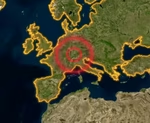
Not only is it possible for war criminals who were convicted before the International Criminal Court, served their sentences and returned to Bosnia and Herzegovina to run for the highest government positions because there are no obstacles to it in the Electoral Law, but they can also serve the highest posts in companies or elsewhere. Namely, the Ministry of Justice has never adopted a decision to include Hague tribunal verdicts in the domestic records.
A document to prove one has not been convicted of a crime is usually a prerequisite for almost every job in the country, and it certainly cannot be obtained by someone who, for example, was involved in illegal logging. However, if they commanded mass liquidations of civilians or participated in it, they can do so, despite the verdict, if it was not registered in BiH courts.
"This problem occurs in a situation where the Minister of Justice needs to amend the Rulebook on Criminal Records, which would state that Bosnia and Herzegovina has the obligation to register all persons who have been sentenced before the International Criminal Court for the former Yugoslavia. The Ministry of Justice received records from the Hague Tribunal and such an obligation had to be fulfilled. However, the Ministry of Justice believes that a working group should be formed that will propose changes to the Rulebook, which I think is just delaying the process because the change of the Rulebook is under the exclusive competence of the minister," said Nezir Pivic, former deputy minister of justice.
And the ministers of justice, both in the previous and this term came from the Croat Democratic Union (HDZ), whose top officials are proud of their friendship with, for example, Darijo Kordic, who is responsible for the brutal murders of 116 Bosniak civilians in Ahmici. The victims wonder if those officials are preparing the ground for Kordic, (Jadranko) Prlic and the like to run the most important companies or run for parliament one day.
"The tribunal submitted all verdicts, translated verdicts to the Ministry of Justice, it was only necessary to enter them into the records, he never wanted to do that, now the new minister has arrived, we also wrote to him, we did not receive any response. Obviously, the ground is being prepared through statements like this and stories about rehabilitation, etc. that tomorrow we can have Kordic as minister", said Murat Tahirovic, from the Association of Genocide Witnesses and Victims
Such possibilities clearly show all the shortcomings of the institutions of Bosnia and Herzegovina in the approach to transitional justice, says BIRN journalist Denis Dzidic. The international community exerts enormous pressure on criminal responsibility, but not on what happens after verdicts and sentences are served.
According to Dzidic, there are no laws and no strategies “that would ensure that such things never happen again”. Such strategies would include vetting and the removal of persons who are connected to war crimes from institutions.
He argued that this should not only apply to those convicted but also those “who were perhaps symbols of that time and now can now, for example, thwart the process of returnees returning to their homes, which are all transitional justice mechanisms”.
This is why there are photographs of war criminals on the tables and walls of numerous municipality buildings, in the mayor's offices, murals on buildings, and glorification of such people in the media. This is also why, for example, Fikret Abdic, a convicted war criminal in neighbouring Croatia, has been mayor for years and it is in accordance with the law. Similar to the now-deceased Simo Zaric, the former deputy mayor of Bosanski Samac, who was convicted by the Hague Tribunal for serious war crimes. According to Culture Minister in Bosnia’s Federation (FBiH) entity, Sanja Vlaisavljevic, this person has served his sentence and is no longer a criminal. However, the victims see it differently.
"He should be permitted to appear to the public, but only to apologise to the victims”, said Tahirovic.
There are no such apologies or attempts to deal with the past, and that is why many hope the Prosecutor's Office will get involved. However, this seems unlikely.
Last year alone, the office adopted 26 decisions to not conduct investigations into reports of genocide denial. And as those who deny war crimes in the country see that there is no punishment, contrary to the law, a new wave of glorification of war crimes began in the country.
Kakvo je tvoje mišljenje o ovome?
Učestvuj u diskusiji ili pročitaj komentare





 Srbija
Srbija
 Hrvatska
Hrvatska
 Slovenija
Slovenija



























































